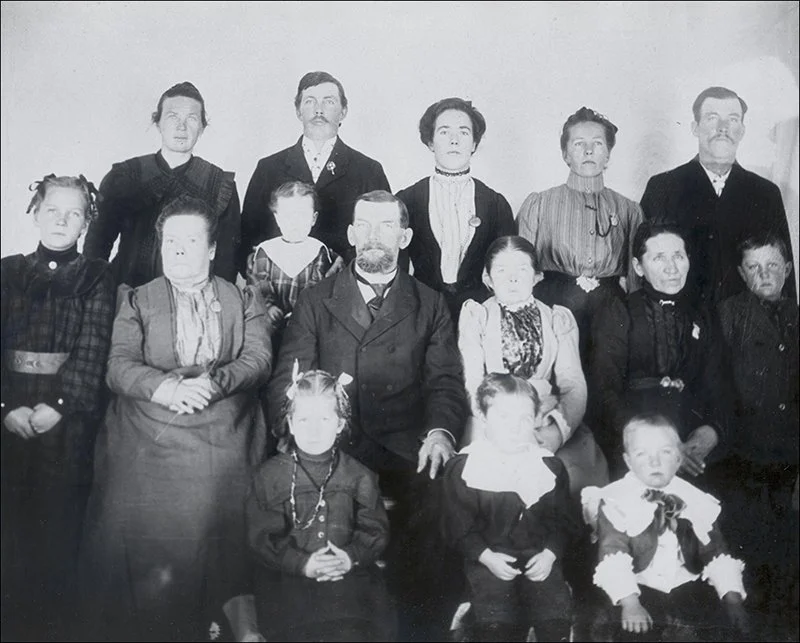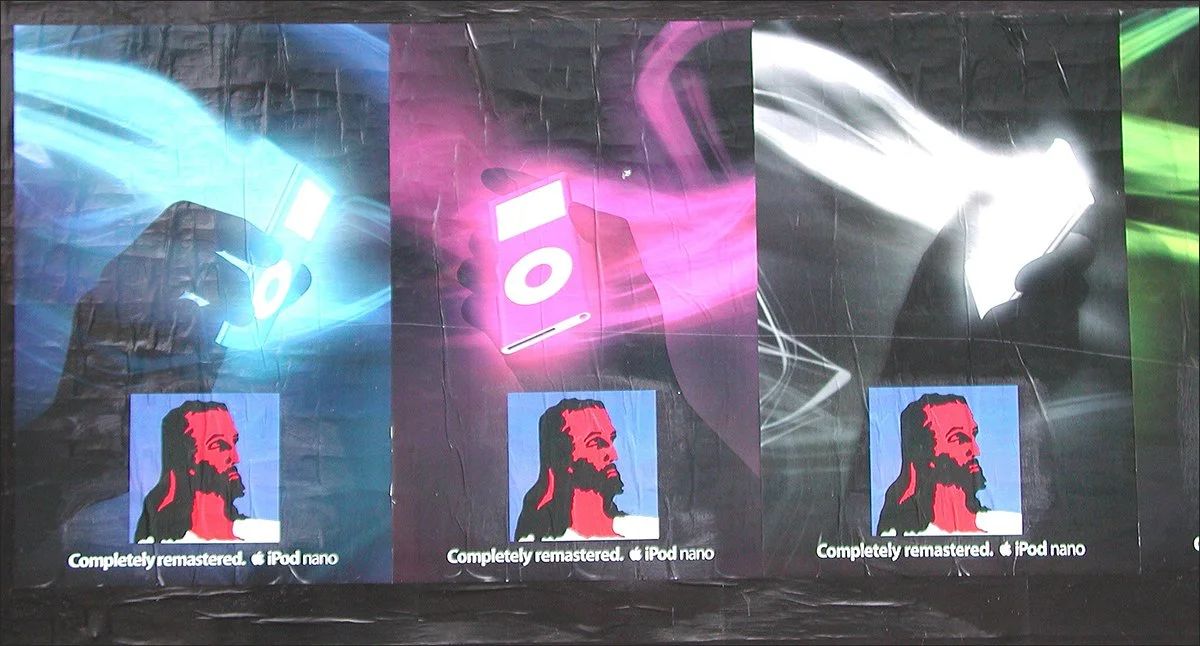Strangers for Ancestors #4: 1643 Massachusetts Bay Colony
English ships in choppy water of the coast (French Collection)
This week I begin to share the origin story of how my family came to be on this stolen land we now call the United States.
As a child in elementary school, I remember being asked where my family came from. I shared that my mother was from Canada; however, other than that I only knew our family to be from Montana and Idaho. Almost all the other students noted coming from different countries in Europe, with a few exceptions; one girl’s family was from Viet Nam, and another’s was from the Dakota’s, her father was Sioux. When I asked my dad about this, he shared that our family had been in America for hundreds of years, but before that they had come from Europe. I’d also heard my family talking about genealogy when we’d go to visit my great grandmother Anna Metzener Wilson Gould and extended family in Idaho and they’d share old photographs of our ancestors, or sometimes I’d hear my parents discuss it with their friends, often in the context of my mother being from Canada and adopted. She believed my father’s family in Idaho didn’t like her because they were Mormon and couldn’t trace her genealogy. And even though our family was not Mormon, that lineage was how my father came to have a strong interest in tracing our family’s history; it would be several decades before I understood why, and only within the past ten years have I taken a closer look and begun to contextualize our family’s American story.
Jacob Sr. and Marie Metzener family (Jacob Sr. is in the center in the 2nd row, Marie is sitting to his left), who immigrated from Switzerland to the United States in 1890 to avoid persecution for having joined the Mormon Church. My great grandmother Ana Metzener Wilson Gould is the third one from the left in the back row.
I became best friends with the girl in my second grade class who was Sioux on her father’s side and white on her mother’s, and while not a primary subject of discussion in a friendship that would span from 2nd grade through high school, Carolyn’s mixed Native and white heritage and my settler-colonizer ancestry were integral to who we were, and that bond would have a strong impact on my early development and who I would become.
Megan with her best friend Carolyn in 4th grade.
Based on research from Mormon records, in 1643 seven-year-old Benjamin Wilson (the first of my Wilson ancestors to live on the North American continent) was sent from England as an orphan to serve the settlers of the Massachusetts Bay Colony.
The Massachusetts Bay Colony was founded by the owners of the Massachusetts Bay Company, including investors in the failed Dorchester Company, which had established a short-lived settlement on Cape Ann in 1623.
As told by historian Roxanne Dunbar-Ortiz on the Alternative Radio Program Facing the Truth about Native America on October 10, 2017:
It is difficult to overstate the ferocity of the attack on the indigenous people of North America by the settler colonizers. The genocidal campaign had its roots in New England. In the 1600s the first seal of the Massachusetts Bay Colony showed a naked Native American with a bush covering his groin. A scroll came out his mouth with the words “Come over and help us.” The jihad was sanctified from the pulpit. The Reverend Cotton Mather called Indians “ravenous howling wolves” and he urged his followers to “pursue them vigorously.” Another man of the cloth, Solomon Stoddard told the colonists “to hunt Indians as they do bears.” And that they did in barbaric style. John Winthrop, a major political figure in Massachusetts, said the white settlers were “instruments of Providence, divinely appointed to claim the New World from its ‘godless’ peoples.”
First seal of the Massachusetts Bay Colony; source: Wikimedia Commons
History of the Massachusetts Bay Colony from two very different sources:
Benjamin Wilson married Anne Fuller in 1655 at the age of 18. In 1658 he became a freeman (no longer an indentured servant) and drew lots for “wood and commons” in Charlestown, Massachusetts, giving him land stolen from the indigenous Massachusett people. Charlestown was originally called Mishawum by the Massachusett. Even though he was a freeman, the laws in Charlestown stated Benjamin could not sell or rent his property or have anyone else live with him without the consent of the town or the Selectmen, “upon penalty of ten shillings for every month they keep them without the town consent” and no man “shall set his house above the distance of half a mile or a mile at the furthest from the meeting of the congregation, where the church usually assembled.” The Selectmen were the Puritans who oversaw the community.
Benjamin and Anne had three children:
Ann Wilson born in 1655
Nathaniel Wilson born in 1661
Jeremiah Wilson born in 1665
Benjamin died at sea in January of 1666 at the age of 28. His estate was inventoried by Selectmen of the Massachusetts Bay Colony.
Inventory of Benjamin Wilson’s estate, following his death in 1666
Writing about the Puritans, Roxanne Dunbar-Ortiz notes in An Indigenous Peoples’ History of the United States (pp. 47 - 48):
All modern nation-states claim a kind of rationalized origin story upon which they fashion patriotism or loyalty to the state. When citizens of modern states and their anthropologists and historians look at what they consider “primitive” societies, they identify their “origin myths,” quaint and endearing stories, but fantastic ones, not grounded in “reality.” Yet many US scholars seem unable (or unwilling) to subject their own nation-state’s founding story to the same objective examination. The United States is not unique among nations in forging an origin myth, but most of its citizens believe it to be exceptional among nation-states, and this exceptionalist ideology has been used to justify appropriation of the continent and then domination of the rest of the world. It is one of the few states founded on the covenant of the Hebrew Torah, or the Christian borrowing of it in the Old Testament of the Bible. Other covenant states are Israel and the now-defunct apartheid state of South Africa, both of which were founded in 1948. Although the origin stories of these three covenant states were based on Judeo-Christian scripture, they were not founded as theocracies. According to the myths, the faithful citizens come together of their own free will and pledge to each other and to their god to form and support a godly society, and their god in turn vouchsafes them prosperity in a promised land.
…..
Founders of the first North American colonies and later of the United States had a similar sense of a providential opportunity to make history. Indeed, as Akenson reminds us, “it is from [the] scriptures that western society learned how to think historically.” The key moment in history according to covenant ideology “involves the winning of ‘the Land’ from alien and indeed evil, forces.”
The principal conduit of the Hebrew scriptures and covenant ideology to European Christians was John Calvin, the French religious reformer whose teachings coincided with the advent of the European invasion and colonization of the Americas. The Puritans drew upon Calvinist ideology in founding the Massachusetts Bay Colony, as did the Dutch Calvinist settlers of the Cape of Good Hope in founding their South African colony during the same period. Calvinism was a protestant Christian movement with a strong separatist political component. In accord with the doctrine of predestination, Calvin taught that human free will did not exist.
Megan Wilson, Logos: Born Again in the USA, multi-media, multi-site project, 2006
Learning about Benjamin Wilson and his status as an orphan sent to serve the Massachusetts Bay settler-colonizers, I was touched by his position as an abandoned child growing up as insider/outsider and how variations of that theme have continued throughout the generations of my family, including my own experience. However, what strikes me the most about this history is the toxicity of the settler colonizers’ belief in their position as exceptional and entitled to conquer and control whomever and whatever they deemed to be theirs in the name of God, and how that noxious belief system continues to leave a path of violence and annihilation throughout the world today. I’m thinking about the treatment of women as second class citizens, the vilification of the poor, the destruction of our natural world, and the deep-seated racism that is at the foundation of this country’s origin story. These are not the values I learned in church or school as a young child. I was taught to treat people with kindness and generosity, especially those who are struggling, to share with those in need, and that we are all valued equally in the eyes of God. While I never abandoned these ideals, it became clear early on that hypocrisy was also a highly valued practice for many proselytizing on behalf of their Judeo-Christian God, and all one had to do to validate their actions was to interpret the scriptures in ways that would provide justification, or they could admit they had sinned and they would be forgiven, or they could give more money. In other words, it felt like a game that was rigged to benefit those who had power over those who did not. I decided it best not to play and just live those values as best I could.
Thankfully for me, there are many others throughout the world who have not bought into this mindset of control and conquest and who are living and working from a place of compassion and justice for all living beings.






